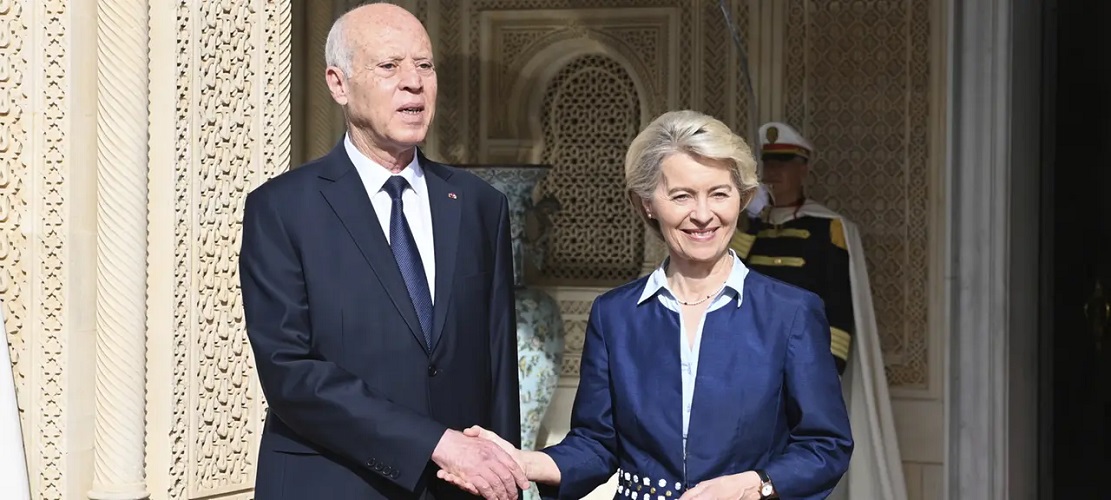Tunisia’s President Rejects EU Financial Aid
Is the migration agreement between Tunisia and the EU in jeopardy? After refusing entry to an EU delegation a few weeks ago, President Saied is now rejecting EU funds as “alms”.
Tunisia has rejected financial aid worth millions of euros announced by the European Commission, intended to help the country in its fight against irregular migration and stabilize its budget. President Kais Saied stated during a meeting with Foreign Minister Nabil Ammar that Tunisia “doesn’t accept anything resembling charity or alms”.
“Tunisia rejects what the European Union has announced in recent days,” said Saied, according to a statement from the presidential office on Facebook. “Not because of the small amount,” but because the proposal contradicts the previously signed memorandum of understanding between Tunisia and the EU. The exact contradiction perceived by Tunis was not specified.
According to “Politico,” representatives of the Tunisian government were reportedly upset with EU members of parliament who criticized setbacks regarding democracy in Tunisia. Critics argue that Saied’s rule is becoming increasingly authoritarian.
127 million euros for the economy and migration
The European Commission had announced over a week ago that it would disburse around 127 million euros to Tunisia in order to reduce migration through the country and boost the struggling economy. About 67 million euros of this amount would be provided in connection with a controversial migration agreement. Additionally, 60 million euros would be allocated for budgetary support to help the country recover from the Covid-19 crisis.
Tunisia is one of the main transit countries for refugees from Africa aiming for Europe. Saied’s statements raise doubts about the future of the controversial migration agreement between Brussels and Tunis.
Doubts about the migration agreement
Under the memorandum of understanding signed in July, Tunisia is supposed to receive financial assistance of up to 900 million euros in return for taking stronger action against smugglers and illegal crossings. The EU Commission aims to reduce the number of smuggling boats coming to Italy via Tunisia.
Doubts about the agreement also emerged when Tunisia denied entry to a delegation from the European Parliament in mid-September. The delegation later stated that this behavior was “unprecedented” since the 2011 revolution in Tunisia. The Tunisian side did not provide any reasons for the decision.
Last week, Saied postponed the planned visit of a delegation from the European Commission to Tunisia. The meeting was supposed to discuss the details of the migration agreement.
Thousands of migrants from Tunisia to Lampedusa
In recent months, thousands of undocumented people from Africa have come to the Tunisian city of Sfax to embark on boats to Europe.
Several hundred people have been arriving on the Italian island of Lampedusa every day in overcrowded boats for weeks. The Mediterranean island is only about 140 kilometers east of the Tunisian coast.

